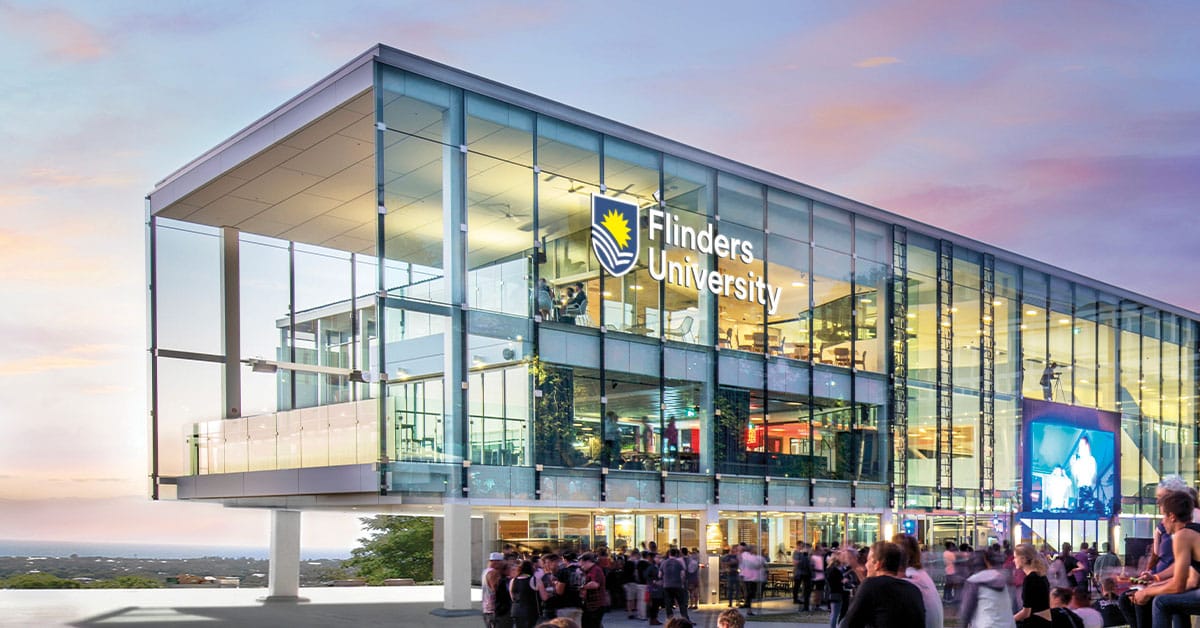The University of Technology Sydney CFI – Manipulating the Gut Lung Axis to Treat Experimental Chronic Obstructive Pulmonary Disease, Australia 2023
Application is now open for the CFI – Manipulating the Gut Lung Axis to treat experimental Chronic Obstructive Pulmonary Disease at the University of Technology Sydney. Interested candidates are encouraged to send their applications in before the deadline date.
About the University of Technology Sydney and Scholarship
The University of Technology Sydney (UTS) is one of the top 200 institutions in the world and the top young university in Australia. Its bustling campus is in the heart of Sydney, close to all conveniences and transportation, making it the perfect place for PhD students to live.
The University of UTS and Centenary Institute (CI) have collaborated on a collaborative program called The Centre for Inflammation (The Centre). The Center, under the direction of Professor Phil Hansbro, is a sizable, globally acclaimed, and world-leading research center in chronic respiratory disorders. Australian business and government organizations acknowledge the Centre as a premier source of information and experience in this field. The Centre conducts basic, discovery-based, and translational research.
The Centre study and create fresh, unique treatments and preventatives, as well as conduct translational human and clinical investigations. The Centre also look into the processes of illness initiation and development.
The Centenary Institute of Cancer Medicine and Cell Biology, a top independent medical research facility with close ties to the University of Sydney and the Royal Prince Alfred Hospital, is where the Center is housed. Three main topics: cancer, inflammation, and cardiovascular disease—are the focus of the study. The institute expertise is in identifying the causes of disease and using this information to enhance patient diagnosis and care. Camperdown is where Centenary Institute is situated.
To effectively treat clinical trial human patients with COPD, this study will look at nutritional and microbial therapies in experimental and human settings. Faecal Microbial Transfer (FMT), certain bacterial taxa/probiotics, and dietary modification will all be used in the experiments. Dietary treatments will be created at the molecular level to combat the formation of particular metabolite profiles and certain bacteria populations. This will make it feasible to quickly profile the most successful treatments, which was not achievable in human trials.
To better understand how treatments affect the Gut Lung Axis (GLA), immunity, and experimental or human Chronic Obstructive Pulmonary Disease (COPD), experiments will make use of the special experimental mice models. The impact of the samples on lung function and airway inflammation will be examined. Successful trials will be thoroughly described, and the GLA on a few of the most instructive will be extensively characterized.
They have created (FMT) models that exhibit significant preventive and therapeutic protection against all experimental COPD symptoms. In this study, protective metabolite and immunological alterations will be profiled, correlation analysis will be done, and the functions of these changes in isolation in experimental COPD and germ-free (GF) mice will subsequently be defined.
The scholarship program will also look at the impacts of modifying dietary consumption at the molecular level by using a variety of popular probiotics and prebiotics as well as changing the diet’s composition to include more or less fiber, starch, carbs, lipids, and sugars.
The goal of this study is to identify the microbiome-based therapies that are most successful in human cells, experimental COPD, influenza and COVID-19 infections, and exacerbations.
Details about CFI – Manipulating the Gut Lung Axis to treat Experimental Chronic Obstructive Pulmonary Disease at the University of Technology Sydney:
Scholarship Sponsor: University of Technology Sydney, Australia
Scholarship Value: $32,500 per year (RTP Stipend rate, indexed annually); additional funds ($7.5k) available during the PhD for PhD-related expenses
Number of awards: N/A
Study level: PhD
Host Institution(s): University of Technology Sydney, Australia
Eligibility Criteria for CFI – Manipulating the Gut Lung Axis to treat experimental Chronic Obstructive Pulmonary Disease
Applicants are advised to meet the following conditions to be eligible for the CFI – Manipulating the Gut Lung Axis to treat experimental Chronic Obstructive Pulmonary Disease at the University of Technology Sydney:
- Candidates must be nationals or legal residents of either Australia or New Zealand.
- A bachelor’s degree in a biological or medical field is required for applicants.
- Own a stellar academic record and previous lab experience
- Obtaining an honors degree with a First Class, Second Class Division 1, an MSc Research degree, or an MSc Coursework degree with a research thesis lasting at least six months.
Selection Procedure
Candidates must:
- Possess great communication skills, the capacity to work with a variety of individuals and within existing collaborative teams, and be highly driven and capable of working independently.
- Possess an understanding of the needs and environment of a research or laboratory
- Know how to use common research applications on a computer.
- Possess the ability to keep accurate laboratory records
- ELISA, RNA extraction, reverse transcription, qPCR, western blotting, cell culture, aseptic method, histological analysis, immunohistochemistry, immunofluorescence, flow cytometry, and primer design are examples of common lab procedures that one should be familiar with.
- Having the ability to run in vivo mouse models
Application Process for CFI – Manipulating the Gut Lung Axis to treat experimental Chronic Obstructive Pulmonary Disease
Candidates should send their CV, list of publications, and selection criteria to Prof. Phil Hansbro by the closing date. Shortlisted candidates will be advised with more details. Please contact Professor Phil Hansbro for further information.
The Submission Deadline: 01 November 2023
Not interested in this particular scholarship? See other Australia scholarships here.








